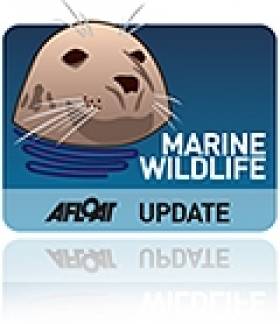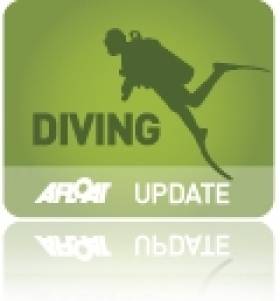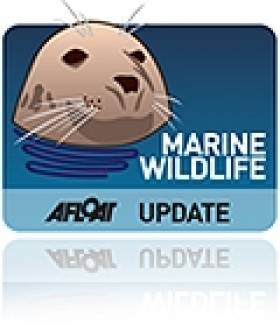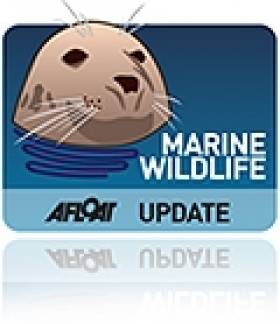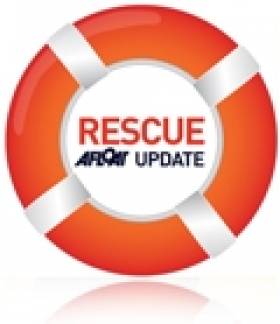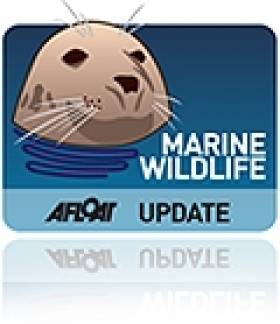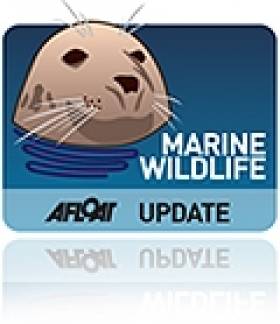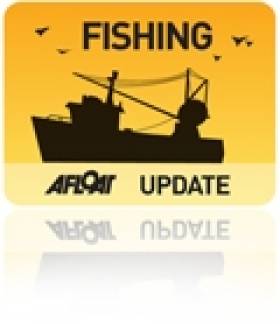Displaying items by tag: UK
UK Designates New Marine Conservation Zones
#MarineWildlife - The British government has announced the creation of 27 new marine conservation zones (MCZs) after a long delay, as BBC News reports.
Last December it was decided that just 31 of the 127 potential sites for marine wildlife protection around the British coastline proposed by government advisors would be designated as MCZs - a decision welcomed by some coastal users but lambasted by conservation groups as displaying a "lack of ambition".
More recently, professional fishery managers expressed their disappointment with the reduction in scale - since reduced further by increased costs at four sites - and called for a "clear timetable" for expansion of the zones network.
Plans were delayed further earlier this year, with the situation blamed by Environment Minister Richard Beynon on budget cuts and the high cost of scientific assessment.
The news that 27 MCZs are now finally designated has been welcomed as a "significant milestone" by the Marine Conservation Society, which still warns that it falls short of the proposals recommended for an "ecologically coherent" network.
BBC News has much more on the story HERE.
British And NI Divers Called To Take Part In RNLI Survey
#Diving - Divers across Britain and Northern Ireland are being called on to help the RNLI with research into participation and attitudes to safety in the sport by taking part in a new online survey.
The RNLI, in partnership with the British Diving Safety Group (BDSG), is asking divers and dive instructors in the UK to take 10 minutes to complete the online survey, which looks at their reasons for participating in diving, how often they take to the water, preferred methods and locations, experience and training, awareness of possible hazards and use of safety measures.
The findings will be used to help the RNLI and BDSG develop tailored and relevant safety messages for the diving community, to help make the sport even safer.
Last year alone, 314 diving incidents were reported to the British Sub-Aqua Club (BSAC). The survey, being undertaken by Substance on behalf of the RNLI, launched on Tuesday 27 August and will run for nine weeks, during which time anyone who dives in the UK – no matter how often or what level of experience – is invited to take part.
To supplement the online survey, face-to-face surveys will be conducted at dive sites, charter boat launch and departure points, and at Dive 2013, the NEC Dive Show in October. In-depth interviews and focus groups will also be conducted. Divers wishing to take part in these are encouraged to contact Substance via the survey website.
RNLI coastal safety manager Nick Fecher, who is running the project, explained the reasoning behind the research.
"Diving is a hugely popular sport but accidents do happen. A total of 314 diving incidents were reported to BSAC last year and the RNLI’s volunteer lifeboat crews have rescued 96 divers and saved 13 divers’ lives in the past five years," he said.
"By carrying out this research, we hope to understand more about how and why people dive, what they know about the risks and what safety measures they take. We’re hoping to hear from divers of all levels of experience, so we can then develop really targeted and relevant safety advice to help them enjoy their sport as safely as possible.
"Coastal safety is a key part of the RNLI’s remit of saving lives at sea – by offering important safety advice to people taking part in coastal activities like diving, we hope to prevent incidents from happening in the first place and, ultimately, save lives."
All who participate in the survey are offered the option of free entry into a prize draw, with the first prize of a DX dive computer, kindly donated by Suunto Diving UK, and a second prize of an Abyss 22 regulator, kindly donated by Mares. Winners will be chosen by Substance using a random number generator by 15 November.
Dismay Over Britain's 'Lack of Ambition' Over Marine Conservation Zones
#MarineWildlife - Fears among conservation groups that the UK would enact just a quarter of the proposed Marine Conservation Zones (MCZs) in British waters have been realised with the news that just 31 out of a potential 127 sites will be designated as protected by the end of 2013.
The original proposals, as reported last year on Afloat.ie, cover the waters around the English and Welsh coastlines - of which only 1% is currently protected - recommending a variety of zones that offer different levels of protection for marine wildlife and plantlife, allowing flexibility for fishing and other activities.
A government decision on the conservation areas was already postponed in November last year after pressure from coastlines users.
But as the Guardian reports, Westminster has now been accused of a "lack of ambition" by the Marine Conservation Society (MCS) over the announcement on Thursday 13 December, which the charity says flies in the face of the government's own advisers who have recommended a 'coherent network' of sites around Britain, including the immediate designation for 59 sites regarded as 'highly threatened'.
"We cannot delay protection," said Jean-Luc Solandt of MCS. "We wouldn't stand by and let wildflower meadows and ancient forests be dug up and cleared, and yet heavy fishing gear is dragged across all kinds of habitats, destroying large swaths of the seabed with very little control."
The World Wide Find for Nature (WWF) added to the chorus of disapproval, saying the decision by the Department of Environment, Food and Rural Affairs (Defra) "falls woefully short of what is needed to protect the marine environment".
Ali Champion of WWF UK said: “It’s disappointing and shows a complete lack of commitment to the protection of our seas in a coherent way."
Of the four zones recommended for the Irish Sea area, only one - at Fylde Offshore, off Lancashire - has been chosen by Defra for protection. But as the Blackpool Gazette reports, local campaigners say they will vow to continue the fight to 'save our seas'.
Water Users Speak Out Over UK Marine Conservation Proposals
#MARINE WILDLIFE - Sailors, fishermen and SCUBA divers in England's West Country could face "tough new restrictions" if plans for conservation zones in the Irish Sea and around the UK coast go ahead.
According to This Is Cornwall, groups representing water users argue that marine protection plans "would have severe knock-on effects on those who rely on the south west's coastline for employment and leisure".
Alana Murphy of the Royal Yachting Association said: "A lot of the small inshore areas proposed as conservation zones coincide with estuaries and bays that are used by sailors for mooring, or for laying buoys for racing. We are concerned we could lose important sailing areas."
Companies involved in offshore renewable energy have voiced their concerns on the impact of marine reserved on their development, while the National Federation of Fishermen's Organisations added that the scale of proposed fishing reserves was too great, and could potentially push commercial fishermen "to other areas which will then get overfished".
As previously reported on Afloat.ie, the UK's Wildlife Trusts have expressed dismay that plans to establish Marine Conservation Zones in the Irish Sea and elsewhere have been shelved till at least next year after pressure from fishermen, boaters and other groups.
British Boat Users Sailing Abroad Risk Fines Over Red Diesel
#NEWS UPDATE - British boat users are risking big fines if they sail their craft outside UK waters due to new laws on the use of red diesel, the Daily Telegraph reports.
New laws coming into force on 1 April "will require anyone moving into international waters to sign a declaration that their boat is not being powered by red diesel".
Red-dyed diesel is used by farmers and commercial fishermen throughout the UK at a lower rate of duty. It is also widely used by recreational boaters and yacht owners, as is green diesel by Irish pleasure boaters, though such users have been required to pay the full rate of tax for a number of years now.
However, the European Union is now clamping down on the use of dyed diesel.
The decision by Brussels is causing consternation among the yachting community, which argues that unmarked or 'white' diesel is not widely available in harbours and marinas.
And concerns remain over the presence of biofuels in white diesel which, as previously reported on Afloat.ie, can be harmful to marine engines.
The Daily Telegraph has more on the story HERE.
Scottish Search and Rescue Base UK's Busiest in 2011
#RESCUE - The Royal Navy search and rescue unit at HMS Gannet was the busiest in the UK last year, STV News reports.
The unit - based in Prestwick, near Glasgow - responded to nearly 300 call-outs and rescued 240 people in Scotland, northern England and Northern Ireland throughout 2011 with its fleet of Sea King helicopters.
The big numbers put HMS Gannet at the top of the UK's 12 search and rescue units for the fifth year running.
"Like all emergency services, we work under significant pressure and always aim to provide the best service we possibly can," said HMS Gannet's Lieutenant Commander Debdash Bhattacharya. "Frequently lives depend on it."
Since 2007 the unit has rescued 1,575 people from 1,865 call-outs in total. Last year's call-outs represented 17% of all call-outs from military bases in the UK.
STV News has much more on the story HERE.
Irish Sea Far From 'Dirty, Lifeless' Says New Website
#MARINE WILDLIFE - The UK's Wildlife Trusts have launched a new website in an effort to redress the idea that the Irish Sea is "a dirty, lifeless" place.
As BBC News reports, the trusts' Cheryl Nicholson put down the Irish Sea's poor image, saying "nothing could be further from the truth".
"Our sea is home to so many amazing species and habitats," she added, "but sadly, after centuries of neglect, it is not in a good state. We must act now to protect the Irish Sea from the depths through to the coastal shallows."
The new website is part of a campaign by wildlife trusts throughout northwest England, Wales, Northern Ireland and the Isle of Man to establish 15 Marine Conservation Zones recommended for the area.
The zones, if officially designated, would provide "a haven for wildlife to recover and thrive", said Nicholson.
As previously reported on Afloat.ie, plans to establish such zones in the Irish Sea have been shelved till 2013 at the earliest after pressure from fishermen, boaters and other groups.
BBC News has more on the story HERE.
Public Needed to Help Record Whale and Dolphin Strandings in UK
#MARINE WILDLIFE - Some 46 reports of stranded whales and dolphins in Northern Ireland are among the thousands recorded across the UK over the last six years, according to BBC News.
A new study co-ordinated by the Zoological Socoety of London (ZSL) shows that some 3,500 cetaceans were stranded on the British coastline between 2005 and 2010.
Though year-on-year figures have fallen overall, is presumed that many more strandings have gone undetected.
Many were found to have died of disease or starvation – particular harbour dolphins.
But human activity such as fishing, shipping and chemical pollution also poses a significant threat to marine wildlife in the waters around the British Isles, said Rob Deaville of the ZSL.
The public is being encouraged to report stranded marine mammals to help create a more accurate picture.
BBC News has more on the story HERE.
Irish Sea Conservation Zones Shelved Till 2013
#MARINE WILDLIFE - Some 14 Marine Conservation Zones in the Irish Sea are among the network of planned marine wildlife sanctuaries around the UK that has been postponed.
The Liverpool Echo reports that the UK Department for the Environment, Food and Rural Affairs (Defra) has shelved plans to create the conservation areas by the end of 2012 after pressure from "groups that use the coastline frequently including fishermen, yachting enthusiasts and seaside villagers".
There will now be a six-month delay while and impact assessment on the network of well over 100 proposed sites is presented to the British government.
As previously reported on Afloat.ie, conservation groups have raised concerns that fewer than a quarter of the proposed sites around the UK will receive official protection.
Fishing Vessel Skipper Pleads Guilty
On 3rd January 2011 the UK registered fishing vessel 'Karen' was returning from a day's fishing in the Irish Sea when it grounded on the rocks at the North entrance to the port of Ardglass.
The vessel asked for urgent assistance from the Coastguard and the lifeboat from Portaferry was requested to launch to their aid. Because the weather was fair they were able to bring the crew ashore to Ardglass and to put pumps aboard the stricken vessel. The boat was later re-floated as the tide rose, however it sustained serious damage to the bow and keel.
At the Magistrate's Court in Downpatrick on 7th November 2011, skipper Simon Wills pleaded guilty of failing to properly navigate his vessel and to employing crew who were not qualified and did not meet the requirements of the fishing vessel safety training regulations
Mr Wills was fined a total of £600 and ordered to pay £1,250 to the RNLI.
On summing up the Magistrate Brian Archer said,
"It was fortunate that no one was injured."
Captain Bill Bennett, Area Operations Manager (Survey and Inspection) Belfast, for the MCA stated that
"This was a serious breach of the fishing vessel safety training regulations and once again reminds all fishermen of the need to ensure everyone onboard is properly qualified and to safely navigate his vessel and to maintain a lookout at all times. All breaches of the Maritime Regulations are taken seriously by the Maritime and Coastguard Agency."



























